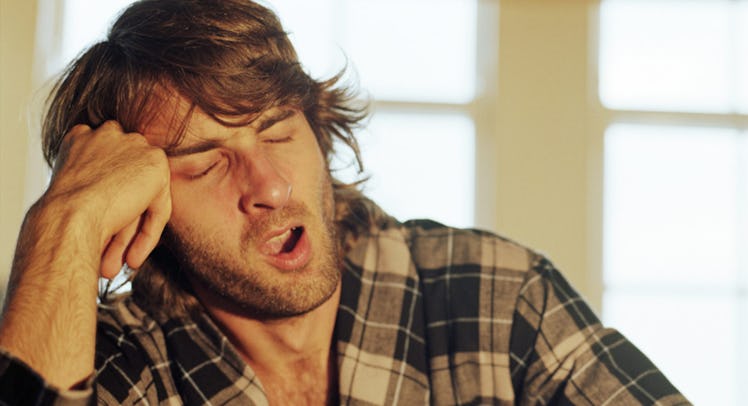You’re 30. Just Give Up On Sleep
For some, the terrible sleep of the twilight years begins in their mid-30s.

Older adults are terrible at sleeping and, according to a literature review published in Neuron, some men may already kick off the tossing and turning of their twilight years in their mid-30s. Once men hit their 30s, the study suggests, the deep sleep that comes before REM (known as delta sleep) can decline by 50 percent. The result is grogginess by day and infuriating insomnia by night. And you may not even notice that you’re falling off your feet. “The older adult brain appears to be sleep deprived, but it has fewer active receptors to sense that,” co-author Bryce Mander, a neuroscientist at UC Berkeley, told Discover. “It might be that there is a sleep need, and it’s building and it’s chronic, but the brain is somehow less sensitive to it.”
Mander and colleagues scoured the sleep literature to try to figure out why we get less and less sleep as we age. Aside from the surprising finding that declines in sleep quality can begin at age 30, the researchers also identified a possible mechanism behind those sleepless nights. They suggest that, as our brains age, they become worse at identifying the signals that foster sleep.
“It’s almost like a radio antenna that’s weak,” co-author Matthew Walker, also of UC Berkeley, told Popular Science. “The signal is there, but the antenna just can’t pick it up.”
Prior experiments hinted at this theory—at least in mice. One study cited in the review suggested that mice of all ages possess roughly equal levels of neurochemicals responsible for sleep but that the brain receptors that pick up on these chemicals tend to decline with age.
Not that there’s anything we can do about it—yet. Sleeping pills often can’t achieve the sort of sleep older adults are missing out on, and electrical brain stimulation is still in its infancy. “The American College of Physicians has acknowledged that sleeping pills should not be the first-line knee-jerk response to sleep problems,” Walker said in a press release. “Sleeping pills sedate the brain, rather than help it sleep naturally. We must find better treatments for restoring healthy sleep in older adults, and that is now one of our dedicated research missions.”
This article was originally published on